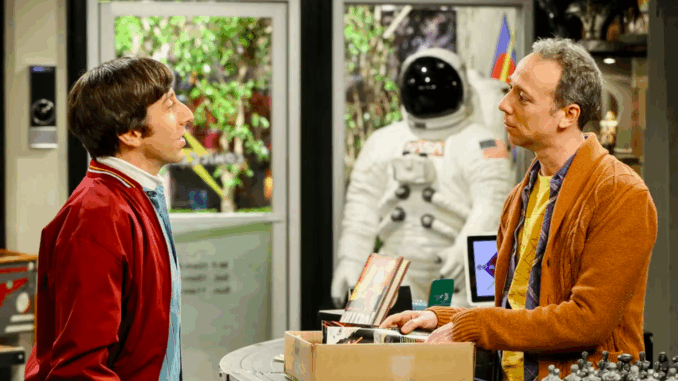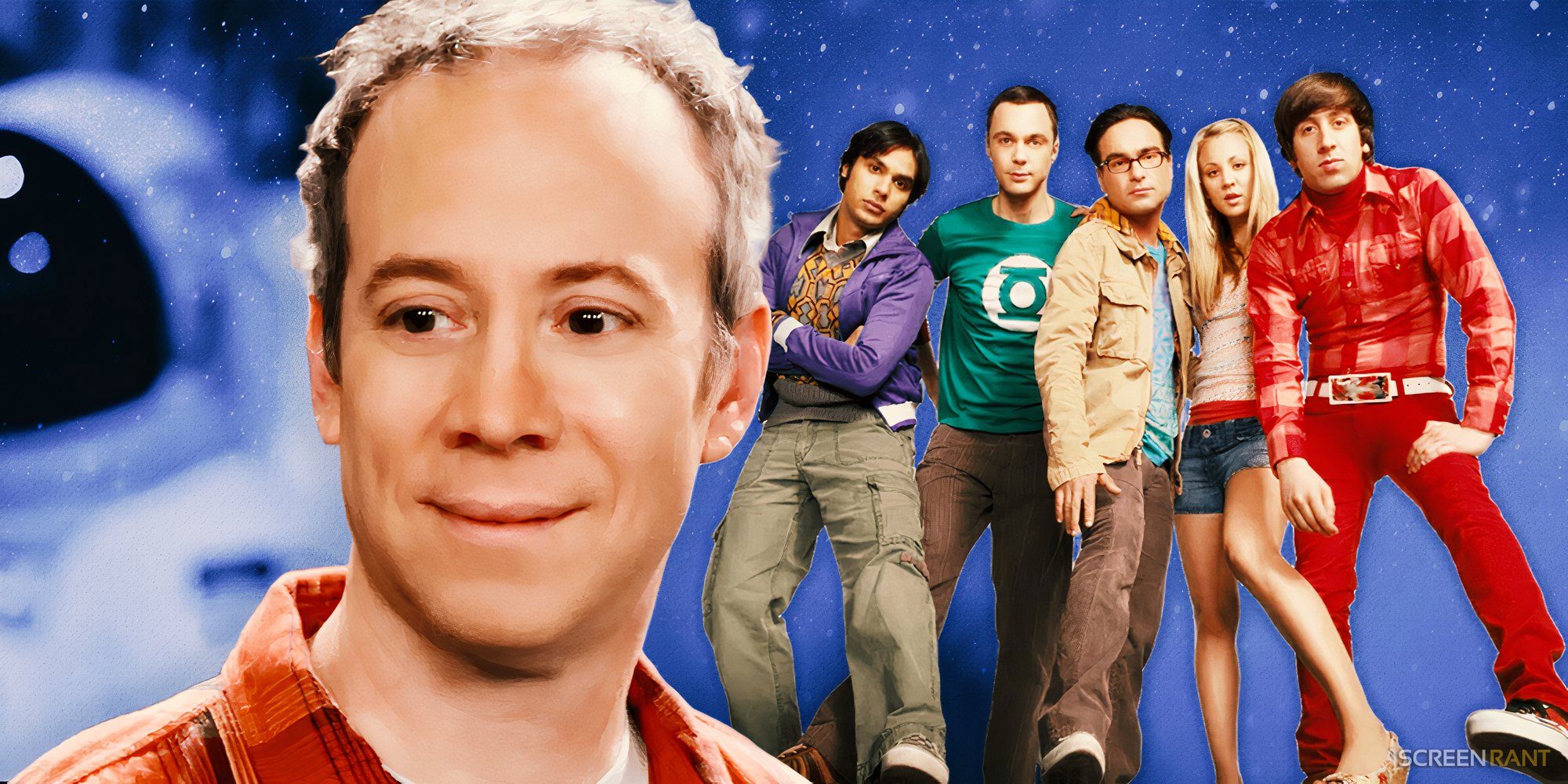
When The Big Bang Theory ended its 12-season run in 2019, few imagined that Stuart Bloom — the soft-spoken, eternally unlucky comic book store owner — would one day headline his own show. And yet, Stuart Fails to Save the Universe is officially in development, putting Kevin Sussman’s lovable loser at the center of the next chapter in the Big Bang universe.
It’s a surprising choice — but maybe that’s exactly why it makes sense.
The Rise of the Underdog
In the original series, Stuart was rarely in the spotlight. He drifted in and out of the main friend group, sometimes a punchline, sometimes a supporting friend, and occasionally the only adult in the room. His background was never deeply explored, and his role often felt reactionary: the guy who runs the comic shop, the guy who ends up living with Howard’s mom, the guy who’s always just… there.
But if you look closer, Stuart represents something vital in The Big Bang Theory: the emotional anchor for characters too self-absorbed to recognize their own flaws. He was the “everyman” in a world of eccentric brilliance. And that’s why he works as a lead.
An Antidote to Genius Fatigue
After twelve years of Sheldon’s pedantic genius, Leonard’s insecurity, and Raj’s romantic fumbling, the franchise needs a break from the academic elite. Stuart’s story offers a return to humility — a character whose life is not ruled by equations or tenure, but by rent checks, missed opportunities, and small wins.
In many ways, Stuart is us — unsure, well-meaning, and just trying to survive.
What a Stuart-Centered Story Could Explore
The appeal of a Stuart-led show isn’t just about novelty. It’s about opportunity. With Stuart, writers have a blank canvas — a character who’s mostly unexplored, whose life is undefined, and whose world isn’t bound by the constraints of Caltech or childhood trauma.
Here’s what a show like Stuart Fails to Save the Universe could explore:
Realistic Aging
Stuart is in his 40s, not married, and struggling financially. This opens the door to storylines about:
-
The pressure to “figure it out” later in life
-
Coping with regret
-
Rebuilding identity after failure
-
Finding purpose without traditional milestones
These themes are rarely addressed in sitcoms, and certainly not in The Big Bang Theory, where most characters ended up married, successful, and comfortably settled by the finale.
Geek Culture at a Crossroads
The comic book store setting is perfect for satire and celebration of modern fandoms. Stuart’s store is both a hub and a time capsule — representing a pre-streaming era of physical comics and in-person nerdery. Expect:
-
Culture clashes between old-school and new-age fandoms
-
Debates over comic book canon and fan entitlement
-
The rise of content creators and online celebrity
-
Stuart trying (and failing) to modernize his shop
It’s fertile ground for sharp comedy and heartfelt nostalgia.

Supporting Cast Could Make or Break It
Kevin Sussman is a talented character actor with a dry, understated wit. But even the best lead needs a strong ensemble.
Thankfully, the series is bringing back some familiar faces:
-
Lauren Lapkus as Denise, Stuart’s girlfriend — a fellow comic book nerd with bite and edge
-
Brian Posehn as Bert Kibbler, the gentle geologist with awkward social skills
-
John Ross Bowie as Barry Kripke, the abrasive physicist with a lisp and zero tact
This unlikely trio offers serious comedic range. Imagine Bert trying to help with business plans. Kripke undermining everything for fun. Denise running the store better than Stuart ever could. It’s chaotic, low-stakes brilliance waiting to happen.
Breaking Away from the Big Bang Mold
If Stuart Fails to Save the Universe is going to succeed, it can’t just mimic The Big Bang Theory.
The original series relied on big studio laughs, formulaic plots, and relationship drama. That worked — once. But this show has a chance to reinvent the tone.
A Different Kind of Sitcom
What if the spinoff embraces a more grounded tone? Picture something like Louie, Master of None, or Atlanta — shows that blend humor with melancholy, oddity, and introspection.
-
Episodes that tackle loneliness
-
Misadventures with strange customers
-
Conversations about relevance, aging, failure
-
Flashbacks to formative (and often embarrassing) life events
Stuart doesn’t need to “win” in every episode. He just needs to be real.
The Return of Surprise in a Predictable Franchise
Ultimately, the beauty of this new spinoff is that it caught everyone off guard.
No one expected Stuart to carry a show — and that’s what makes it exciting. It means the writers have to work harder, dig deeper, and take more risks. The safety net of Sheldon’s quirkiness or Penny’s charm isn’t there. This show will live or die on its own weird little terms.
And in a landscape where franchises play it safe, that’s the boldest move of all.